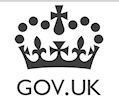The keeping of certain species of wild animals is controlled by the Dangerous Wild Animals Act 1976. No person may keep any dangerous wild animal without first obtaining a licence from their local authority. The animals for which a licence is required before they may be kept are listed in the Dangerous Wild Animals Act 1976 (Modification) (No.2) Order 2007. The purpose of this licence is to protect the health and welfare of the animal and ensure its security.
This licensing procedure does not apply to animals kept in:
a) a zoological garden
b) circus
c) pet shops
d) places registered under the Cruelty to Animals Act 1876 for the purpose of performing experiments
A person is held to be the keeper of the animal if he has it in his possession and the assumption of possession continues even if the animal escapes or it is being transported etc. This removes the need for carriers or veterinary surgeons to be licensed.
Any application made to the Council for a licence must be made (unless in exceptional circumstances) by the person who proposes to own and possess the animal and must:
a) specify the species and number of animals to be kept
b) specify the premises where the animals will normally be kept
c) be made by a person 18 years of age or over and not disqualified from holding a licence under the Act, and
d) be accompanied by a fee of £588.00
Where a licence is granted, that licence will come into effect immediately, and remain in force for a period of two years and shall then expire unless it is renewed. If an application for renewal is made before the date of expiration, the licence continues until the application is determined.
On the death of a licence holder, the licence continues in the name of the personal representatives for 28 days only and then expires unless application is made for a new licence within that time, in which case it continues until the new application is determined.
Applications not complying with these requirements may not be granted.
It is in the public interest that East Cambridgeshire District Council must process your application before it can be authorised. If you have not received a response to your application within a reasonable period, please contact us. You can do this online if you applied through the UK Welcomes service or use the contact details below.
- Licensing enquiry form
- Licensing Department, The Grange, Nutholt Lane, Ely, Cambs, CB7 4EE
- Tel: 01353 665555
Before granting any licence the Council is required to consider a report of an inspection of the premises by a veterinary surgeon or practitioner authorised by it.
The Council can only grant a licence if it satisfied that:
a) There is no public safety, public nuisance or other reason why such a licence should not be given;
b) The applicant for the licence is over 18 years of age, and is a suitable person to hold the licence;
c) The animal will be kept in secure accommodation so that it cannot escape;
d) The accommodation provides the animal(s) with sufficient space for exercise, and provides suitable ventilation, temperature, lighting, drainage and is clean;
e) There have to be satisfactory precautions in case of a fire. A local Fire Officer can be asked to inspect the premises by the Council;
f) Adequate precautions must be taken to prevent and control infectious diseases;
g) The applicant must be the legal owner of the animal;
h) The premises must be inspected and approved by a veterinary surgeon in writing to the local authority;
i) The licence holder must take out adequate insurance against liability for any damage caused by the animal;
j) Licences must be renewed every two years.
The Council is required to specify conditions which:
a) require the animals to be kept only by persons specified in the licence;
b) require the animals to be normally held at the premises specified in the licence;
c) require the animals not to be moved from those premises unless in circumstances allowed for in the licence;
d) require the licence holder and person keeping the animals to be insured against liability for damage caused by the animals to the satisfaction of the LA;
e) restrict the species and numbers of animals;
f) require a copy of the licence to be made available by the licence holder to persons entitled to keep the animals; and
g) any other conditions necessary or desirable to secure the objectives specified in paragraphs (c)-(f) listed under 'matters for consideration' above.
The local authority may attach any other conditions, which it thinks fit, but if it is to permit the animal to be taken into another local authority area for more than 72 hours, it must consult that local authority.
Conditions not required by the Act to be attached to the licence may be revoked or modified by the local authority or new conditions may be added. These variations come into effect immediately if they are requested by the licence holder, but otherwise the local authority must notify him and allow a reasonable time for compliance.
Where a person is convicted of an offence under the Dangerous Wild Animals Act 1976 or under:
a) Protection of animals Act 1911 to 1964;
b) Protection of Animals (Scotland) Act 1912 to 1964;
c) Pet Animals Act 1951;
d) Animal Boarding Establishments Act 1963;
e) Riding Establishments Act 1964 to1970;
f) Breeding of Dogs Act 1973.
The court may cancel any licence he may hold to keep a dangerous wild animal and disqualify him, whether or not he is a current holder, from holding such a licence for such a period as the court thinks fit. The cancellation or disqualification may be suspended by the court in the event of an appeal.
The Council may authorise competent persons to enter premises either licensed under the Act or specified in an application for a licence, at all reasonable times, producing if required their authority, and the authorised officers may inspect these premises and an animal in them.
The penalty for wilfully obstructing or delaying an authorised officer is a maximum fine at level 5.
If a dangerous wild animal is being kept without the authority of a licence or in contravention of a licence condition, the Council may seize the animal and retain it, destroy it or otherwise dispose of it. The Council is not liable to compensation and may recover costs from the keeper of the animal at the time of this seizure.
If you are an applicant or a third party, you should always contact us in the first instance if you have any queries, concerns or cause for complaint preferably in the form of a letter with proof of delivery. If you are not satisfied with the outcome and are located in the UK, Citizens Advice Bureau will give you advice. If you are from outside the UK, please contact the UK European Consumer Centre.
Application Forms
The current fee for a new licence application is £588.00
Before completing your application, your attention is drawn to our privacy and data retention policy
Renewals
Licences are renewable every two years. Completed application forms and the relevant fee must be submitted to the Council before the expiry of the current licence. You are reminded that a completed veterinary inspectors form is required to be submitted with your application.
The current renewal fee is £588.00
Animal Licensing Policy
On the 12 September 2018 the Council's Licensing Committee approved an updated Animal Welfare Licensing Policy to assist all parties involved in this important area of regulation. Applicants and existing licence holders should refer to this document as it provides a great deal of useful information including the standards expected of a modern animal welfare establishment.


